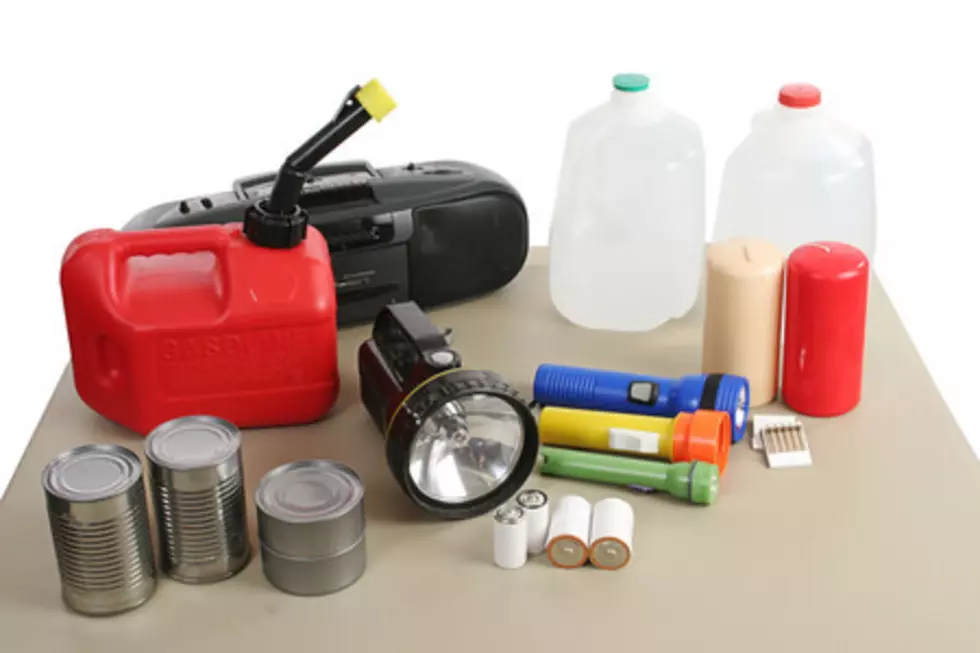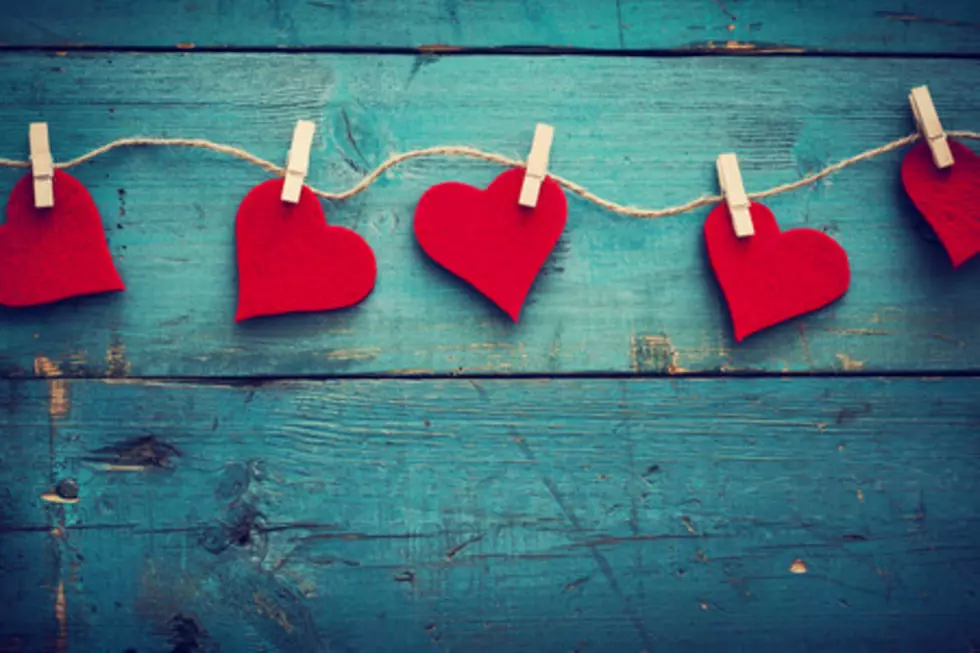
Do You Have a Severe Weather Emergency Plan?
We live in a world where there seems to be a plan for everything. Plans for vacation, plans to accomplish work duties, plans for after-work socializing, and plans for what to do if a fire breaks out in our home. But, how many of us have a backup plan in the event that a bad weather-related disaster hits where we live and we can't leave?

Central New York is no stranger to flooding, earthquakes, and the occasional tornado. How prepared are you and your family in the event a weather event happens and you can't leave your house? Do you have enough water and canned food? What about flashlights and first aid kids? Do you have a meeting point where everyone is instructed to gather if there are bad weather warnings and where you can quickly get your hands on a disaster grab bag? How prepared are you, really?
According to Inc., these are some essential items that you and I should have readily available in our homes just in case the worst imaginable natural disaster happens.
ID
Sure, we all have ID and most of us keep it in a wallet that's tucked away in a purse or placed on our dresser, but it isn't a bad idea to keep copies of all your forms of ID in a waterproof bag in a safe. This also includes information such as your bank account number (s) and any insurance information, from health cards to renters or homeowners coverage information.
Cash
We live in a debit/credit world but when you're in a bind and need something quickly cash can be used to buy things that can't be bought by credit. Inc. recommends,
"Have at least $250 in your go bag, and make sure it's in relatively small bills. Keep it with your ID in your waterproof pouch (or ziplock)."
Drinking Water
To be safe, you want to make sure that you've got at least one gallon of clean water per person per day on hand. Not only is it a good idea to stock up on water but you should also have something like a LifeStraw on hand to help purify dirty water in case you run out of bottled water.
First Aid Kit
This one pretty much explains itself. You should always have supplies on hand in case you get hurt and need a quick patch until you can see a doctor.
Battery Powered Radio
If you need to know what's going on but have been cut off from the outside world and have no power, a battery-powered radio will be exactly what you need to keep you informed. Additionally, make sure that you have a stash of extra batteries on hand.
Flashlights
Flashlights are a must. If the power goes out you need to be able to see and these lanterns cost an incredible amount of brightness.
Non-Perishable Food
Water will only sustain you for so long. Keeping a stash of canned foods on handy is a good idea. Also, make sure to keep a crank can opener next to your stash. If you type 'Emergency Food Rations' into Amazon, you'll find a list of foods that you can purchase that have expiration dates far into the future so that you don't have to worry about continually replenishing them.
Clothes
Pack extra clothes in a waterproof bag and throw them into a duffel bag. You'll need socks and underclothes as well as ponchos. In this bag, also pack some extra blankets and bug spray.
Battery Powered Phone Charger and Extra Cord
If a disaster strikes, you might not have power and without power, you won't have a way to charge your phone and reach the outside world. Solar-powered battery chargers are an invaluable thing to have on hand. These battery packs recharge by sunlight so there's no need to have a power source. This particular battery pack also doubles as a flashlight.
An Emergency Whistle
God forbid the worst-case scenario happens and you find yourself trapped in the rubble. You'll want to be able to signal first responders of your whereabouts and so emergency whistles should be packed in your disaster grab bag.
More From 98.1 The Hawk



![Amazon Prime Day Is Here and This Is What You Should Be Buying [GALLERY]](http://townsquare.media/site/498/files/2021/06/attachment-christian-wiediger-rymh7EZPqRs-unsplash.jpg?w=980&q=75)





